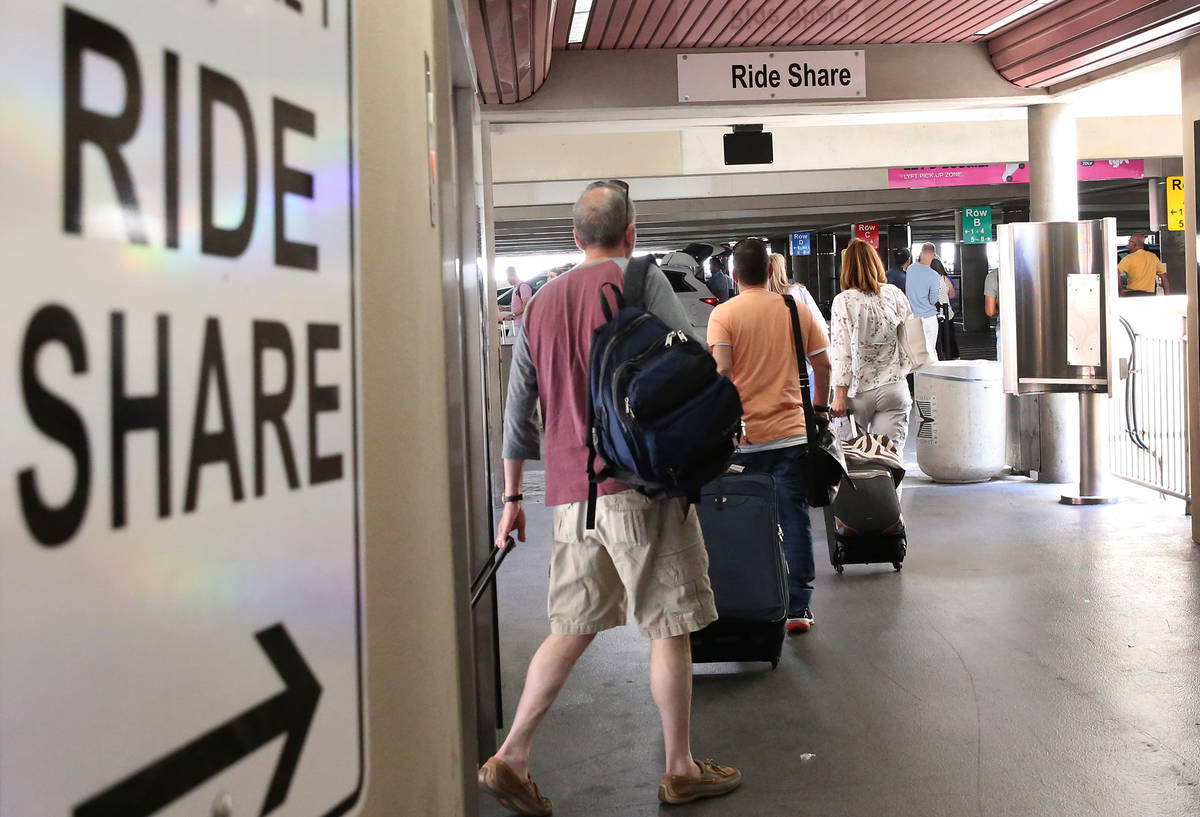MEGAN McARDLE: California’s high-stakes game of chicken with Uber and Lyft
Want to watch something more riveting than a Zoom convention and less worrying than a doomscroll of COVID-19 news?
Then turn your eyes to the state of California, which is engaged in a high-stakes game of chicken with some of its many “gig economy” companies. At present, the outcome is shaping up to be a fiery crash.
Last September, long before the pandemic was on anyone’s radar, the California Legislature passed a new labor law, known as AB5. It tightened up the rules for deciding who could be hired as an independent contractor and who must be classified as an employee. Unfortunately, the criteria were tightened to the point of strangulation for a number of professions, from freelance journalists to sign language interpreters. Not to mention the bill’s actual targets, gig economy companies such as Uber, Lyft and DoorDash.
When AB5 was debated, its backers asserted that it would benefit gig workers because it would mean that many would suddenly have secure jobs with — cue the trumpets — employee benefits! They apparently didn’t realize that not everybody wanted such jobs; that some valued the flexibility of working only when they wanted to. Perhaps they did not know many companies generally can’t offer such flexibility to employees who are entitled to all manner of benefits, from mandated breaks and a comfortable chair, to paid sick leave and health insurance. Which is why employers of hourly workers require regular shifts instead of saying, “Show up when you have a few minutes to spare.”
Nor did AB5’s boosters seem to wonder whether the companies could afford to bring on loads of new staffers, rather than firing their Californian contractors and redistributing their work to other states. Many companies decided on the latter path — ironically, including at least one media company that had published cheerleading tributes to AB5.
Most recently, Uber and Lyft, based in San Francisco, announced they would close their California operations after a court ordered them to reclassify drivers as employees. They’re still running at the moment, having secured a last-minute stay pending appeal, but ultimately, unless that appeal proves fruitful, or the law changes, they say they’re pulling out.
And you should believe them, though AB5’s architect, Democratic Assemblywoman Lorena Gonzalez of San Diego seems to think they’ll blink if she just shows enough steely will. “These are billion-dollar companies who are publicly traded,” she told a local television station. “They have enough money to treat their employees correctly.”
How blithe she sounds! Gonzalez has apparently not examined the financials of the companies in question, nearly all of which are losing scads of money. Going public doesn’t mean a firm can indefinitely subsidize money-losing employees; if anything, it means the opposite. Being publicly traded cut Uber and Lyft off from the steady stream of venture capital they had been using to subsidize money-losing rides.
Of course, some supporters of AB5 argue that this is precisely the reason we should force those companies to reclassify their workers — if you can’t afford to use staffers to provide the services, their argument goes, then your business wasn’t very good in the first place. (This is at least arguable, though one could point out that drivers apparently chose these jobs over whatever their next-best alternative was. It’s not clear how we benefit them further by driving these companies out of the state.)
But quibbling aside, a pandemic is a very strange time to have that argument. Maybe it was reasonable, when business was booming, to believe that Uber and Lyft could afford to jack up their prices,and reorganize themselves as a mass employer of low-skilled labor, with all the internal bureaucracy, rigid scheduling and picayune management controls of a Walmart or a McDonald’s. Maybe it was reasonable, when unemployment was under 4 percent, to think that putting Uber and Lyft out of business would inspire drivers to go find better jobs.
Today, the unemployment rate in California is north of 13 percent. Uber and Lyft have seen their ride-hailing business collapse as people stayed home, and their ancillary businesses, such as food delivery, haven’t made up the lost revenue. It was doubtful they could ever have stayed in California with AB5 in effect, but until the coronavirus is conquered, the thing is clearly impossible.
The game of chicken really has only one player: the government. If legislators don’t reverse themselves — or a court doesn’t put a stop to this — those companies will get dinged a little when the inevitable crash comes. But the ones who will really get burned are the residents who depend on these companies for income, transport and services such as grocery delivery that Gonzalez and her colleagues have decided Californians will somehow be better off without.
Follow Megan McArdle on Twitter, @asymmetricinfo.

















